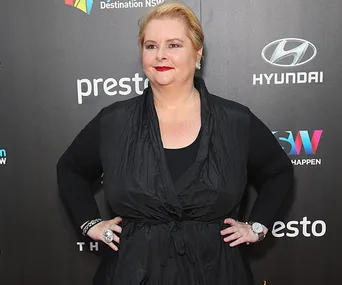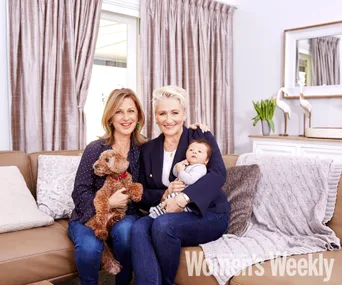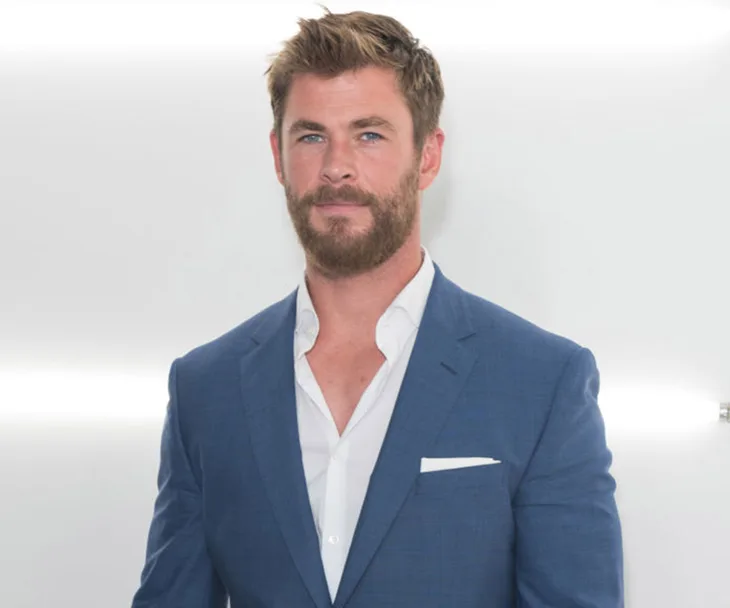Whether we like it or not, a non-binding, non-compulsory postal vote on same-sex marriage is upon us.
And while we might have been incredulous at the decision to go ahead with the $122m postal vote, we’re more concerned at the severe ramifications it could have for the LGBTIQ community.
Dr Brad McKay, medical practitioner and science communicator spoke to The Weekly about the issue that’s especially close to his heart. For Dr Brad, this postal vote affects him personally.
“We should all strive for equality in society, not put equality up for debate”
“When the postal vote was confirmed, I was appalled but unsurprised,” Dr Brad told The Weekly. “Same-sex marriage has been used as a political football for a very long time and this public vote is an expensive delaying tactic, used to just kick it down the road a little further.”
“Our politicians have orchestrated a toxic environment where Australians are expressing hatred toward each other. We knew this debate would create a divide across the country. That’s why health professionals advised to avoid a public vote at all costs.”
Ramifications of the postal vote on the LGBTIQ community
“It’s tough enough coming to terms with your sexuality as a teenager, but it’s even more difficult when ‘No’ campaigners are given a national platform to discriminate against you and your future relationships,” Dr Brad explains.
“It’s the same for Australia’s older LGBTIQ generation. Many same-sex couples have been together for decades, raising their children and grandchildren, but continue to hear their relationship is worth less than others just because they’re gay. Australia owes them better respect.”
What it feels like when your family are voting ‘No’
How this vote affects family relationships can also be devastating, something Dr Brad knows too well, having a family who are staunchly voting against marriage equality.
“This debate is digging up old wounds, forcing people to relive painful memories, and tearing families apart,” says Dr Brad. “For better or worse, our families are showing their true colours.”
As a gay man who “tried to pray the gay away”, his family have “made it clear that they disapprove of homosexuality”.
“They told me that they were voting ‘No – but it’s nothing personal'”, Dr Brad reveals.
“Their church leaders have led them to believe that sexuality is something that can be changed, and despite all evidence to the contrary they blindly stick to their out-dated belief. I was raised in that environment. I spent years ignoring my sexuality and also attended therapy in an effort to cure my ‘problem’ – but it didn’t work.”
Health professionals are (quite rightly) up in arms about the impending vote but politicians also had grave concerns about allowing basic rights to be up for public debate too.
Leader of the Opposition Bill Shorten gave a dire warning against the proposed plebiscite before the postal vote was decided: “There is real risk that LGBTIQ Australians will be subjected to a well-organised well-funded campaign of vitriol and prejudice.
“Every piece of expert advice tells us young Australians who are gay are more likely to contemplate suicide. A ‘No’ campaign would be an emotional torment for gay teenagers. If one child commits suicide over the plebiscite, then that is one too many.”
When the plebiscite failed to pass the Senate for the second time, the government instead decided upon the non-compulsorily postal vote. With ‘No’ and ‘Yes’ campaigns already dividing the country, it seems the political arguments against the plebiscite are coming to fruition regardless.
As Dr Brad succinctly notes, “It’s unethical for the rights of a minority group to be put up to a public vote. And it’s detrimental to all Australian citizens.”
Watch: Penny Wong’s stirring speech on marriage equality. Post continues after video
“I sincerely hoped my family would support me and my relationship during this postal survey,” Dr Brad continued. “But instead, they have actively campaigned against the cause. I’m deeply disappointed in their prejudice and discrimination.
“I’m still in shock that my own family could vote against such equality, and jeopardise my future happiness, the happiness of my partner, my friends, my patients, and the whole LGBTIQ community.”
It’s not too late to have these important conversations with loved ones for an inclusive and equal Australia.
We’re part of a small club now. 22 countries around the world including the United Kingdom, the United States, New Zealand, Canada and the majority of Europe already have marriage equality. It’s getting beyond embarrassing.
Dr Brad is still hopeful for the results, even though his own family are voting against marriage equality.
“Hopefully the rest of Australia can see that gay men and lesbian women are people too. We fall in love and want our own ‘happily ever after’, just like anyone else. I’m optimistic that the majority of Australians will give us a ‘fair go’ and vote ‘Yes’.”




